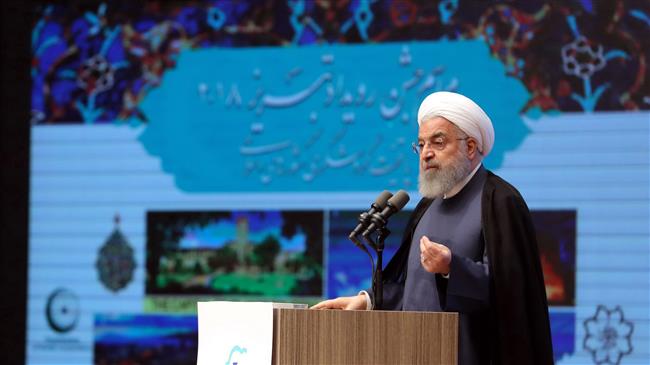West fears losing dominance of Mideast due to Iran’s rising influence: Analyst
US President Donald Trump and French President Emmanuel have both said they must stop Iran’s regional influence. Press TV has talked to Richard Becker, a member of the ANSWER Coalition, as well as Michael Lane, president of American Institute for Foreign Policy, to discuss the issue.
Becker believes the Western powers are concerned about Iran’s rising influence in the Middle East because they do not want to lose their dominance over the region.
“What is going on here is that the old colonial powers –Britain and France and the new dominant power in the region – the United States – do not want to have any opposition, do not want to have any diminishing of their power and their position in this very key strategic region of the world,” he said.
Addressing the 72nd High-level Meeting on Peace building and Sustaining Peace at United Nations Headquarters in New York on Tuesday, Iran's Foreign Minister Mohammad Javad Zarif said the time has come to move away from hegemonic illusions which are causing strife in the Middle East.
Zarif also noted that Persian Gulf countries must join forces in order to maintain regional peace instead of trying to become regional powers. This is while
Becker described Zarif’s approach as “reasonable,” adding that what Iran wants is an end to the domination of the Middle East by outside powers –namely the United States and its allies.
The analyst further maintained that the foreign policy of the United States is to line up other countries against Iran in an attempt to wage a war against the Islamic Republic.
According to Becker, there is no intention on part of the United States to get out of the Middle East given the fact that the whole region is dotted with US military bases, asserting that as long as Washington’s foreign interventions continue, the situation will remain the same.
Meanwhile, Michael Lane, the other panelist on the program, said the West believes Iran is extending its influence and ability to "disrupt" the region.
He went on to say that they would like to see Iran stop supporting the groups which they consider to be “disruptive to regional harmony” - namely Yemen’s Houthi Ansarullah movement, the Lebanese Hezbollah resistance movement and the Palestinian resistance movement Hamas – and to better get along with the Persian Gulf Cooperation Council (PGCC) countries.
VIDEO | Yemenis praise the military for its successful operations against Israel
VIDEO | Israel continues to bomb Gaza homes
VIDEO | An insider's view of the country: Meybod City in Yazd
‘All wars have rules. All of those rules have been broken’ by Israel
VIDEO | Report flags India’s violation of rights of Rohingya detainees
Turkey's foreign minister meets Syria's de facto leader in Damascus
VIDEO | US Syria plots
'Next to impossible' to rescue patients from Gaza's Kamal Adwan Hospital: Director















 This makes it easy to access the Press TV website
This makes it easy to access the Press TV website